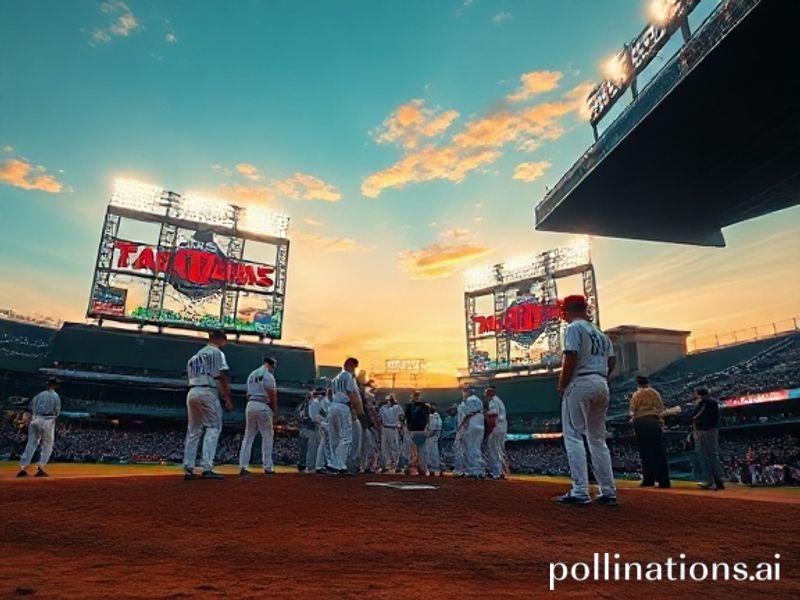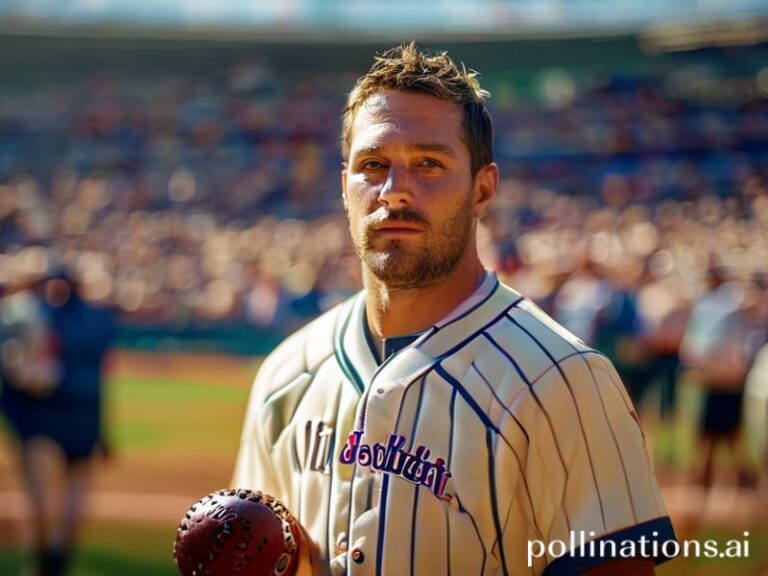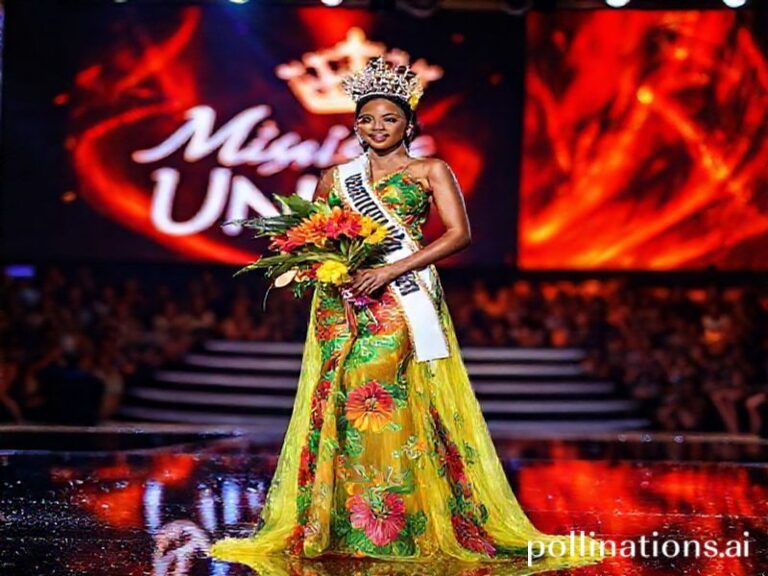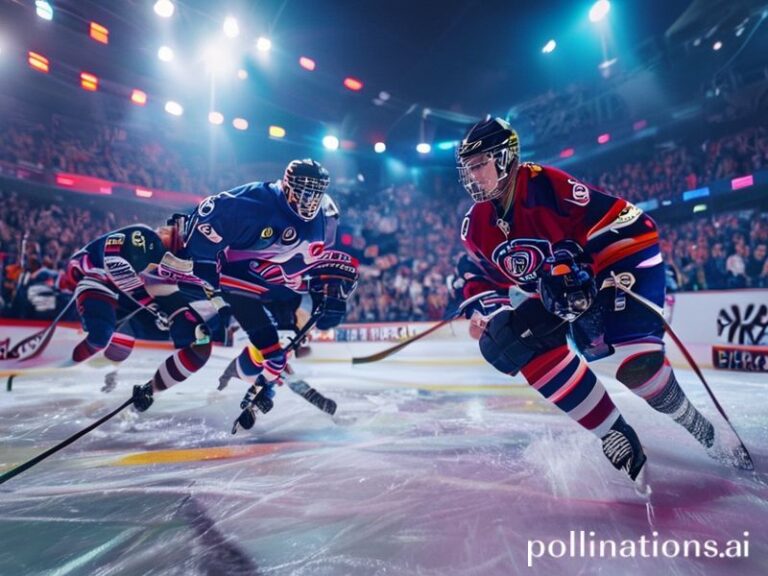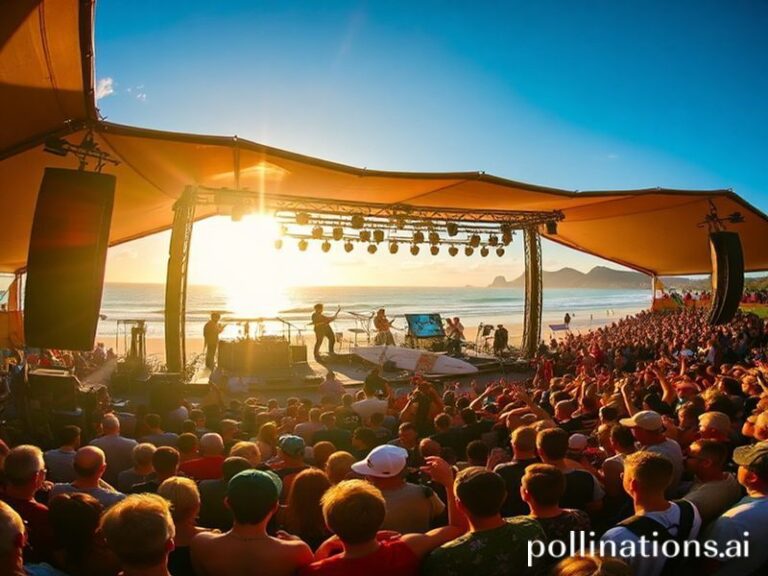Global Swings & Misses: How the Texas Rangers Became a $1.2 Billion Mirror to World Disorder
From an altitude of 37,000 feet somewhere over the mid-Atlantic, the phrase “Texas Rangers” sounds less like a baseball franchise and more like a geopolitical Rorschach test. To the Japanese businessman nursing a second sake beside me, it evokes memories of the 2010 World Series—his first live game at Tokyo Dome, where the only thing faster than Yu Darvish’s splitter was the credit-card reader at the beer kiosk. To the Spanish diplomat scrolling headlines two rows up, the same two words summon a 19th-century law-enforcement unit fond of extrajudicial enthusiasm, a memory Spain knows intimately from its own colonial miscellany. Somewhere behind us, a Qatari teenager is quietly updating a fantasy roster on an app that knows his location, his sleep schedule, and—judging from the push-notification timing—his mother’s maiden name. The Rangers, meanwhile, continue to bat .500 in the American League West, which is more than can be said for most liberal democracies these days.
Baseball, after all, is the rare American export that didn’t arrive via aircraft carrier. It slipped in through schoolyards in the Dominican Republic, corporate softball leagues in Seoul, and, most improbably, the Dutch Caribbean—countries that still measure success not in championships but in how many shortstops they can ship to Arlington on a Tuesday. The Rangers’ roster currently resembles a United Nations subcommittee on exit velocity: a Puerto Rican catcher, a Cuban slugger with a name longer than most trade agreements, and, until recently, a South Korean infielder whose batting stance looks like he’s politely disagreeing with the strike zone. In an era when supply-chain shortages make global trade feel like a lottery, the Rangers’ front office has managed to secure premium lumber from three continents, a feat the World Trade Organization could study if it ever emerges from its own concussion protocol.
Yet the club’s global footprint isn’t merely demographic; it’s geopolitical. Globe Life Field—the $1.2 billion air-conditioned coliseum that looks like a UFO mated with a suburban mall—was financed with municipal bonds that, in another era, might have built a desalination plant in sub-Saharan Africa. The stadium’s retractable roof, engineered by a German firm and blessed by a Swiss insurance syndicate, can close faster than most parliaments can pass a climate bill. During the 2023 NLCS, when the roof malfunctioned and the turf temperature hit 102°F, local wags called it “Dubai on the Trinity.” One could almost hear the ghost of Milton Friedman whispering, “Privatize the shade, socialize the heatstroke.”
The economic ripple effects are equally absurd. Every Rangers home run triggers a fireworks display manufactured in Shenzhen, launched by Mexican-American technicians, and livestreamed to TikTok users in Jakarta who may never see a baseball diamond but instantly recognize the dopamine hit of commodified joy. Meanwhile, the team’s regional sports network—owned by a consortium whose corporate lineage traces through Rupert Murdoch’s tax shelters and a Cayman Islands shell company called “Lone Star Global Media Holdings IV”—negotiates carriage fees with Canadian cable providers who still think Arlington is somewhere near Calgary. If there’s a clearer metaphor for late-stage capitalism than a bankrupt cable channel arguing over pennies per subscriber to broadcast a sport most Gen Z viewers watch on mute while doomscrolling, the Nobel Committee in Economics hasn’t tweeted it yet.
The darker punchline, of course, is that none of this matters until October. The Rangers could sign every teenage phenom from Caracas to Canberra and still get eliminated by a wild-card team whose payroll is smaller than the annual coffee budget at Goldman Sachs. That’s baseball’s cruelest joke: you can globalize the talent, securitize the debt, and gamify the fan experience, but at the end of nine innings, a journeyman reliever from Tulsa might groove a slider to a utility infielder who spent last winter playing in the Italian league. The ball clears the fence, the season ends, and somewhere a hedge-fund analyst updates a spreadsheet titled “Regime Change Opportunities.”
We land in Frankfurt just as the Rangers clinch a playoff spot on a walk-off passed ball. The pilot, an Arsenal supporter, informs us with the glum satisfaction of a man who’s watched empires dissolve in extra time. I switch my phone off airplane mode and discover that my sports app has already turned the highlight into a push-notification NFT. The world keeps shrinking, the stakes keep inflating, and the Rangers—both ballplayers and historical enforcers—remain what they’ve always been: a projection screen for whatever myth we need to export next. Play ball, or play empire; the box score rarely distinguishes.

